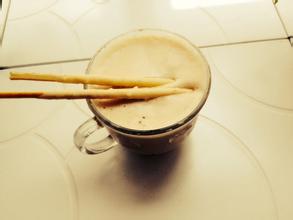Introduction to the name, flavor and taste of the Coffee Manor in Crystal Mountain, Cuba, the characteristics of the variety, grinding scale.
Introduction to the Grinding degree of Coffee Flavor description in Crystal Mountain, Cuba
In Cuba, most of the coffee beans are picked by hand. Coffee beans are picked about every half a month during the ripening period. During or after picking, coffee beans are classified and those immature and bad beans are removed to ensure the quality of the coffee. Cubans usually deal with coffee beans in two ways-tanning and washing. Tanning is the simplest, cheapest and most traditional way to treat coffee, which is to let the coffee fruit dry in the sun but not ferment. The general drying time is about four weeks. The washing rule makes the aroma of the fruit more into the coffee beans, thus adding a coarse fruit aroma to the coffee.
At present, Crystal Mountain Coffee is very precious. This is mainly for two reasons. The first reason is the economic sanctions imposed by the United States against Cuba and the non-opening up of Cuban imports. The second reason is that at present, Cuban coffee beans are mostly acquired by the French and Japanese markets, especially Japan, so it is difficult to buy coffee beans directly from Cuba. In spite of this, the status of Cuban coffee in the hearts of global coffee lovers can still be compared with Jamaica Blue Mountain Coffee.
Yaocote's choice of coffee, which is grown only on three farms in the southwest of the island, is fragrant and has a long aftertaste. This kind of coffee is very expensive and its flavor is comparable to that of any other coffee variety in the world. In the Yauco area, the coffee is owned and operated by local planters. The mountain climate here is mild, the plants have a long mature period (from October to February), and the soil is of high quality clay. Some old varieties of Arabica coffee beans are grown here, although the yield is lower than other varieties, but generally of high quality. People here have been using an ecological and intensive planting method, using only some low-toxic fertilizers and chemicals, and adopting mixed crop planting measures to make the soil more fertile. When it comes time to pick coffee beans, people walk back and forth between coffee trees, picking only fully ripe coffee beans, and then wash them in a roller device for 48 hours.
Yaocote chose coffee beans to be preserved in shells before they were shipped, and the skins were not removed until the order was shipped to ensure the best freshness of the coffee. Relevant U.S. government staff, such as FDA and USEA, will also be present when the goods are submitted, and they work to monitor producers' compliance with federal regulations. There are also staff from the local evaluation board, who take 1 bag out of every 50 bags as samples and use international gauges to evaluate their quality.
Jaime Fortu Fortuno, president of the acting bank Escogido Yauco in Escoki, pays silent attention to all this work, even the smallest details, every year. Fortuno is an investment banker who graduated from Harvard Business School. He was determined to seize every opportunity to open up a top coffee market in Puerto Rico. He expects a maximum annual output of 3000 bags of 45kg each, less than 1 per cent of the island's total coffee production.

Important Notice :
前街咖啡 FrontStreet Coffee has moved to new addredd:
FrontStreet Coffee Address: 315,Donghua East Road,GuangZhou
Tel:020 38364473
- Prev

Introduction to the variety treatment method for describing the flavor of Matari mocha coffee, the taste characteristics of grinding degree
Yemeni boutique coffee bean flavor description introduces Matari mocha-the best of mocha coffee, like top red wine, rich tropical fruit flavor, infatuated, rich and diverse flavor with unique sunshine flavor, fine tasting, can also feel a hint of chocolate sweetness in the final rhyme, the taste is strong worthy of careful taste. Product name: Matalimo, Yemen
- Next

Description of flavor of Brazilian Bahia coffee beans introduction of manor varieties in planting environment with grinding scale powder
Brazilian coffee flavor Brazilian coffee, generally refers to coffee produced in Brazil. There are many kinds of Brazilian coffee, and like other Arabica coffee, Brazilian coffee is called Brazils to distinguish it from Milds coffee. The vast majority of Brazilian coffee is unwashed and sun-dried and is classified according to the name of the state of origin and port of transport. Brazil has 27 states and 17 states produce coffee, but 4 of them
Related
- Detailed explanation of Jadeite planting Land in Panamanian Jadeite Manor introduction to the grading system of Jadeite competitive bidding, Red bid, Green bid and Rose Summer
- Story of Coffee planting in Brenka region of Costa Rica Stonehenge Manor anaerobic heavy honey treatment of flavor mouth
- What's on the barrel of Blue Mountain Coffee beans?
- Can American coffee also pull flowers? How to use hot American style to pull out a good-looking pattern?
- Can you make a cold extract with coffee beans? What is the right proportion for cold-extracted coffee formula?
- Indonesian PWN Gold Mandrine Coffee Origin Features Flavor How to Chong? Mandolin coffee is American.
- A brief introduction to the flavor characteristics of Brazilian yellow bourbon coffee beans
- What is the effect of different water quality on the flavor of cold-extracted coffee? What kind of water is best for brewing coffee?
- Why do you think of Rose Summer whenever you mention Panamanian coffee?
- Introduction to the characteristics of authentic blue mountain coffee bean producing areas? What is the CIB Coffee Authority in Jamaica?

